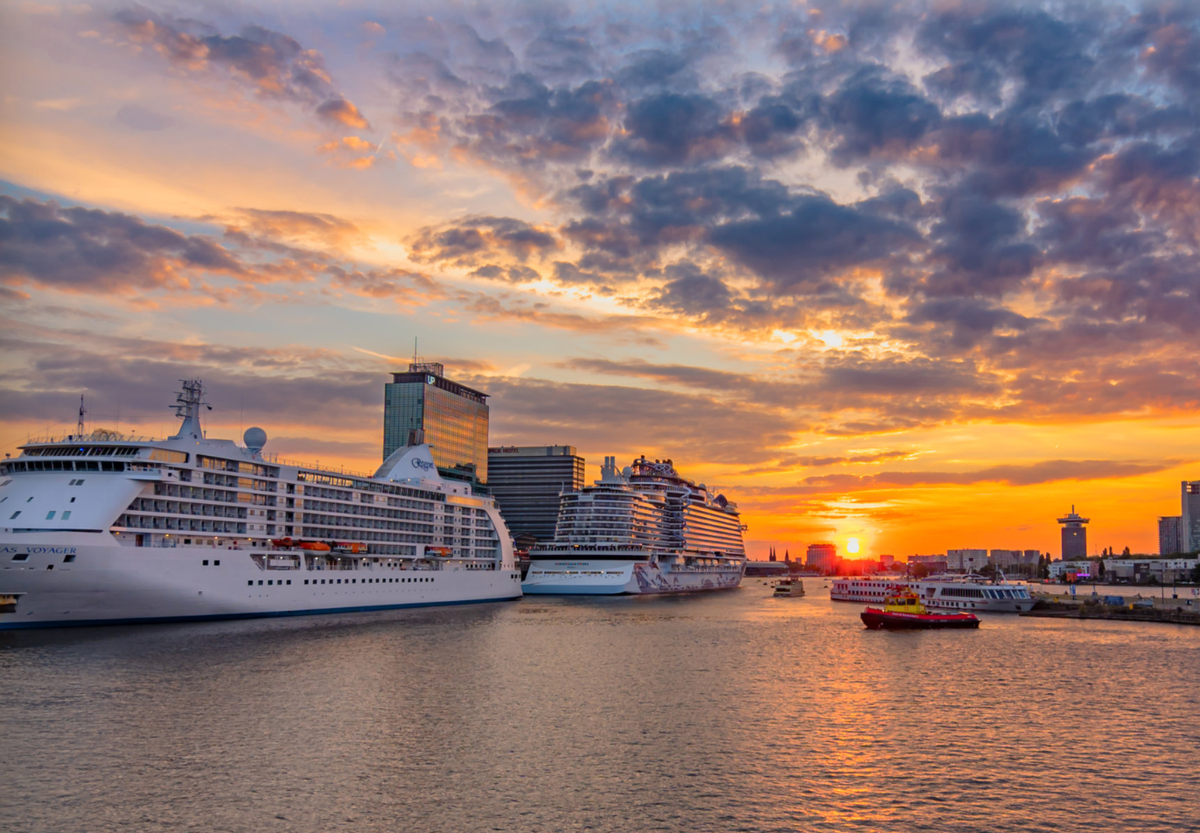This website uses cookies so that we can provide you with the best user experience possible. Cookie information is stored in your browser and performs functions such as recognising you when you return to our website and helping our team to understand which sections of the website you find most interesting and useful.

Amsterdam is set to ban cruise ships from the city centre as it seeks to lower pollution and reduce tourist numbers.
However, there is no clarity about when the move will take effect. A spokesperson for the city council told The Independent: “The municipality of Amsterdam will now investigate how this proposal can be implemented.
“We need to discuss this with our partners within the North Sea Canal area. At the moment it is not yet clear when the proposal can be implemented.”
At present, giant cruise ships can dock close to the city centre at Cruise Port Amsterdam, within walking distance of the historic areas. But following a campaign with the slogan Amsterdam vaart beter zonder cruise (“Amsterdam sails better without a cruise”), the Dutch capital’s coalition of green and centrist parties voted to ban them on these grounds:
- A cruise ship terminal within the city limits puts pressure on the quality of life, is very polluting, and hinders the growth and development of the city
- A good climate and clean air are preconditions for future generations of Amsterdammers. The daily air pollution from one cruise ship in port is equivalent to 31,000 trucks driving a lap on the ring (Amsterdam’s orbital motorway)
- Mass tourism puts pressure on the quality of life in Amsterdam
- The cruise passenger is an example of short-term tourism from which the city benefits little
Currently some passenger ships, including the DFDS ferry from Newcastle, dock at the port of Ijmuiden – where the IJ river meets the North Sea and the coast is closest to Amsterdam.
This could actually prove quicker for cruise passengers aiming for Amsterdam, since the vessels will not need to navigate the North Sea Canal between Ijmuiden and the capital. They can reach the capital in around 30 minutes by coach. Unusually, Ijmuiden has no railway station.
Some cruise ships also use boarding facilities in Rotterdam.
At present any ships scheduled to call at Amsterdam will be able to continue. Given that some cruise itineraries are published for 2025, it may be that the ban is introduced progressively.
Cruise Port Amsterdam, the current terminal, was rebranded in 2022 and describes itself as “your entry to the world class tourist destination and capital of the Netherlands”.
It says: “Cruise Port Amsterdam provides added value to the economy: through the spending of passengers, shipping companies and crew; the tourist tax and the creation of employment.
“Our unique terminal on the river IJ is just a stroll away from the historic Amsterdam City Center. Ideal for the independent traveller who can start exploring the city by foot. As well as strategically positioned to start an excursion to visit the famous Dutch highlights.”
A spokesperson for the Cruise Lines Industry Association said: “We are aware of the media reports about the future of cruise in Amsterdam. As the port has publicly stated, cruise ships have not been banned from Amsterdam.
“Furthermore, the port and Passenger Terminal Amsterdam have already pledged to undertake investments worth millions of euros in port infrastructure and shoreside electricity for the long-term. There have been discussions on its relocation outside the city centre which started back in 2016 and which are still ongoing.
“We are working with the authorities to accommodate the views expressed by Council members while continuing to support the communities that benefit from cruise tourism. Of the more than 21 million visitors that Amsterdam receives each year, around 1 per cent arrive by cruise ship, with cruise tourism contributing around €105m (£91m) to the city annually.”
Venice imposed a ban on cruise ships in 2021, though it has yet to be properly enforced, according to locals.
Amsterdam has also launched a campaign to dissuade groups of hedonistic young men from visiting the city – a move condemned by local hospitality enterprises.



 Africana55 Radio
Africana55 Radio 
